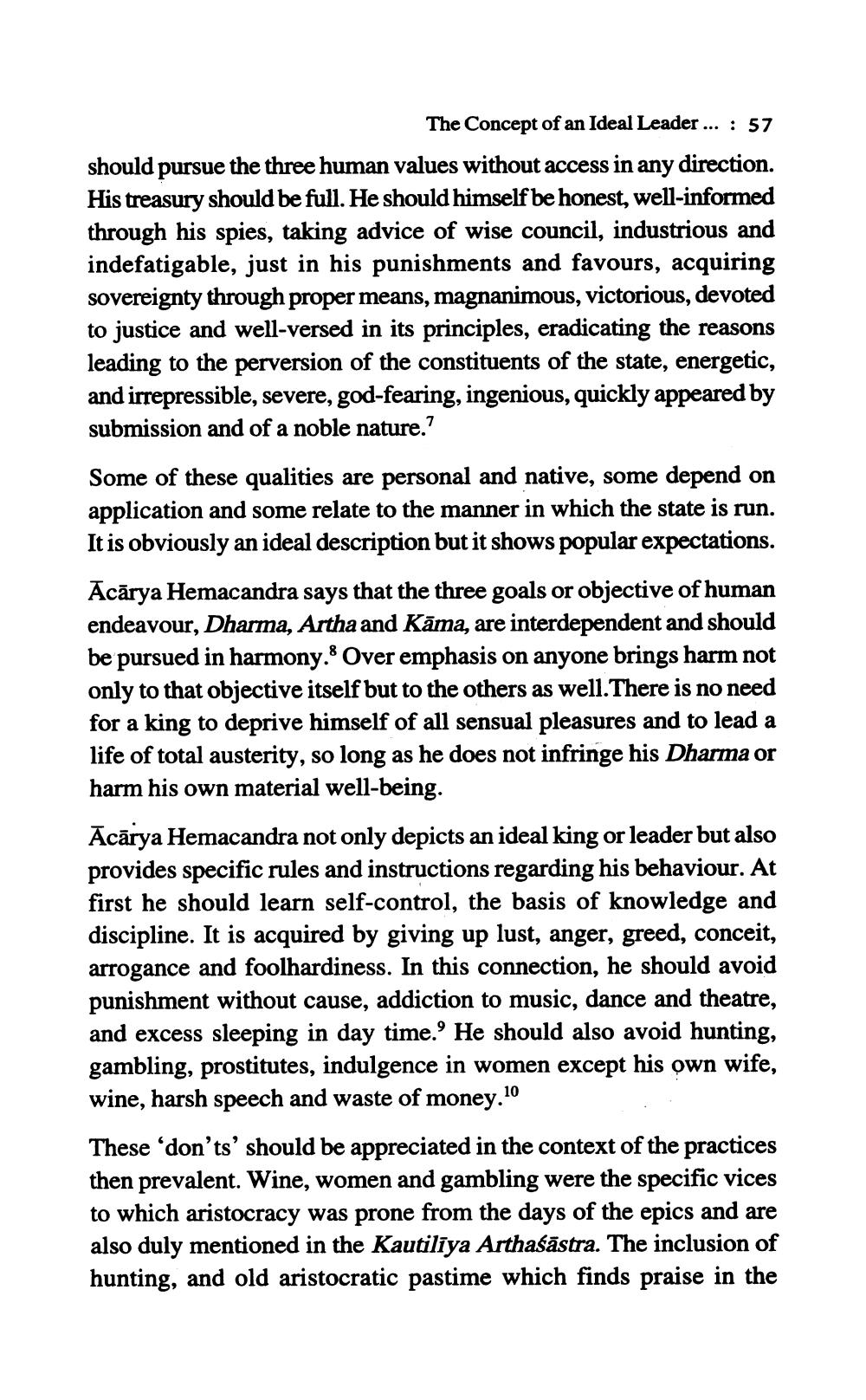________________
The Concept of an Ideal Leader ... : 57 should pursue the three human values without access in any direction. His treasury should be full. He should himself be honest, well-informed through his spies, taking advice of wise council, industrious and indefatigable, just in his punishments and favours, acquiring sovereignty through proper means, magnanimous, victorious, devoted to justice and well-versed in its principles, eradicating the reasons leading to the perversion of the constituents of the state, energetic, and irrepressible, severe, god-fearing, ingenious, quickly appeared by submission and of a noble nature.? Some of these qualities are personal and native, some depend on application and some relate to the manner in which the state is run. It is obviously an ideal description but it shows popular expectations. Acārya Hemacandra says that the three goals or objective of human endeavour, Dharma, Artha and Kāma, are interdependent and should be pursued in harmony. Over emphasis on anyone brings harm not only to that objective itself but to the others as well. There is no need for a king to deprive himself of all sensual pleasures and to lead a life of total austerity, so long as he does not infringe his Dharma or harm his own material well-being. Ācārya Hemacandra not only depicts an ideal king or leader but also provides specific rules and instructions regarding his behaviour. At first he should learn self-control, the basis of knowledge and discipline. It is acquired by giving up lust, anger, greed, conceit, arrogance and foolhardiness. In this connection, he should avoid punishment without cause, addiction to music, dance and theatre, and excess sleeping in day time. He should also avoid hunting, gambling, prostitutes, indulgence in women except his own wife, wine, harsh speech and waste of money.10 These ‘don'ts' should be appreciated in the context of the practices then prevalent. Wine, women and gambling were the specific vices to which aristocracy was prone from the days of the epics and are also duly mentioned in the Kautilīya Arthaśāstra. The inclusion of hunting, and old aristocratic pastime which finds praise in the




